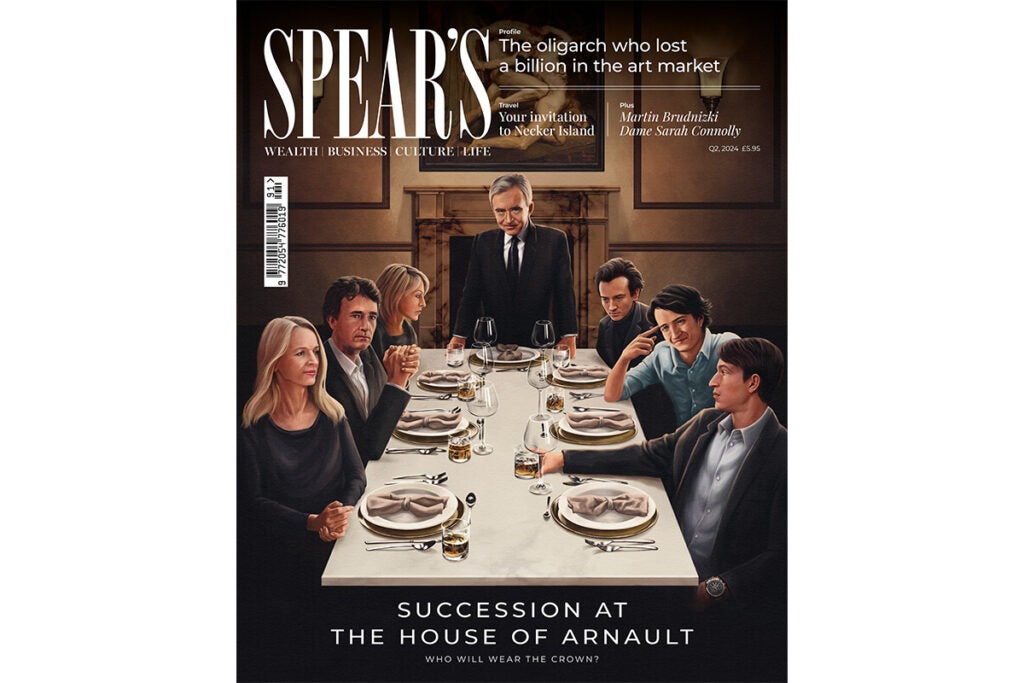
The S&P 500 – powered by the success of the so-called ‘Magnificent Seven’ – may have surged to to a record high earlier this year, but wealth management firms are not all having an easy time. Alongside the effects of continued consolidations, the rise of AI, the spectre of inflation and the prospect of a market correction, one of the challenges facing British providers in this space is the requirement to adhere to new regulations passed down by the Financial Conduct Authority.
Since July 2023, all UK wealth management firms have had to follow the regulator’s new ‘consumer duty’ framework, which is designed to bring ‘higher and clearer standards of consumer protection’ to the financial services market. The new mandate obliges wealth managers to minimise ‘consumer harm’, to ensure their clients are receiving clear and consistent communications about the services and products they sell, and to provide ‘fair value’ for the fees clients pay.
In a consultation paper from 2021, the FCA said it believed the new duty would ‘require a significant shift in culture and behaviour’ for many firms. Profits and share prices may be under threat, too. When St James’s Place said it would cap fees for long-term clients (at 0.85 per cent, down from 1 per cent) in response to the new rules, its share price fell by 16 per cent in one day. Research last year by Quilter found that 44 per cent of financial advisers believed their profitability would decrease as they made efforts to comply with the new rules. A third expected to have to increase fees in order to implement the required changes.
Hilary Wakefield, EFG’s UK head of portfolio management, says the new duty is a welcome development because of ‘the openness that the FCA is bringing to the whole process’ around investments, as well as its efforts to ensure ‘clients are well-informed about products’.

The duty, however, represents a fundamental shift in the way firms are regulated. According to wealth advisory firm IQ-EQ, the FCA’s previous ‘treating customers fairly’ (TCF) principle, introduced in 2006, meant the FCA itself had the ‘responsibility to decide if a firm has acted in bad faith’. In 2017 the regulator’s Financial Services Consumer Panel argued that the TCF regime did not deter firms from mis-selling financial products. By contrast, says IQ-EQ, ‘the consumer duty places direct responsibility on the firms themselves to comply with the duty’.
This expectation was reinforced by a letter in November from FCA director of consumer investments Lucy Castledine to all UK wealth management CEOs. ‘We expect you to have implemented the consumer duty in full,’ she wrote. ‘Your firms are often entrusted with wealth acquired through decades of prudent investment and hard work. Yet many firms undermine this trust by pushing products or services that are too high-risk and/or too complex for most consumers.’
Heavy lifting
Gina Parker, a principal partner at St James’s Place who works with a slate of entrepreneurial HNW and UHNW clients, tells Spear’s she believes the new duty is a positive development, but ‘the implementation of further regulatory changes will have felt like a heavy lift’ for the industry on top of wider market uncertainty. ‘I am sure this will be especially so for many advisers who may have already felt they were working extremely hard,’ she says. But she adds that firms ‘will emerge stronger as they evolve and adapt to the new landscape’.
[See also: Introducing Spear’s Magazine: Issue 91]
Duncan MacIntyre, Lombard Odier’s UK CEO, tells Spear’s consumer duty is an ‘extension’ of the ‘deep responsibility’ placed on the shoulders of C-suite executives to ensure their businesses have the right ‘systems, controls and processes in place’. ‘Consumer duty asks the question: is the client at the centre of everything you do?’ He agrees that will be a challenge for firms and IFAs whose ‘clients are facing disproportionately higher fees for a service level [they] are not receiving’.
Indeed, fee pressure and extra costs could create existential challenges for smaller outfits. According to Quilter, the average financial adviser will have to spend £18,161 to comply with the changes.

If certain customers (at the lower end of the spectrum) are driven out of the discretionary wealth management market because of increased fees, they may opt for cheaper products such as multi-manager funds. Consumer duty is ‘a problem for the whole wealth management market’, says Robert Burdett, an investment manager who heads Columbia Threadneedle’s multi-manager offering. ‘I reckon most advisers of DFMs [discretionary fund managers] would be looking at around £200,000-plus for a cost-efficient portfolio, so everyone is going to be affected.’
Room for opportunity
The shake-up may also create opportunities for new ventures. Two former RBC managers, Katherine Waller and Oliver Saiman, launched HNW advice business Six Degrees last November with annual fees of just 0.7 per cent, keeping costs down through more cost-efficient index investing. That is significantly lower than the FCA’s average estimate of 1.9 per cent for annual charges (when product and portfolio costs are factored in).
But for wealth managers dealing with UHNW customers, fees are not the be-all and end-all. ‘I think value itself is a very difficult commodity to nail to the floor – value is not always about price,’ MacIntyre says. ‘At the top end, value becomes a much broader commodity.’
[See also: Are HNW wealth managers wading into an ‘administrative nightmare’?]
With an ‘intergenerational business’, he says, ‘it’s what you think you’re getting from that organisation, its beliefs, what it stands for, how it delivers to you the benefits of technology or balance sheet. All of these are values. I don’t think consumer duty will have a sharp response in the higher ends of the wealth management industry.’
However, he adds, there are some principles that persist across the industry. ‘It’s about whether you are offering good advice to clients, at a good value. And that is something that has to be front of mind all the time: “Am I giving good advice, and does that warrant the level of fee?”’
This feature first appeared in Spear’s Magazine: Issue 91. Click here to subscribe







